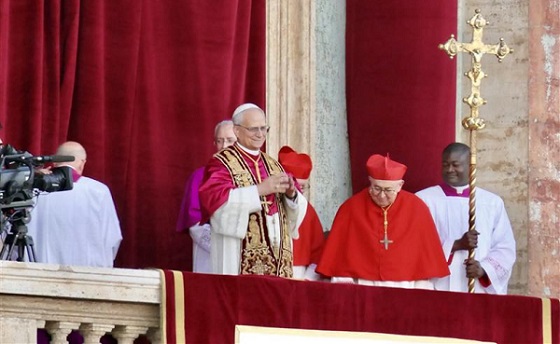Early this morning, the United States says it carried out a ground raid supported by air strikes inside Venezuela, reportedly involving elite U.S. forces, including Delta Force, and removed Venezuelan President Nicolás Maduro and his wife Cilia Flores from the country.
President Donald Trump confirmed the operation publicly and stated that the United States intends to “run Venezuela” during a transition period, explicitly including control over the country’s oil sector. That single statement should alarm Canada far more than any diplomatic condemnation ever could.
Kelsi Sheren is a reader-supported publication.
To receive new posts and support my work, consider becoming a free or paid subscriber.
While this move may be justified on moral or strategic grounds for the U.S., it is unequivocally bad news for Canada, really really bad. Canada’s energy position just weakened significantly and now Canada’s leverage with the United States has always rested on one simple fact: the U.S. needed Canadian oil.
Not liked it. Needed it.
Canada became Washington’s largest and most reliable foreign energy supplier not because it was cheap, fast, or efficient but because alternatives were unstable, sanctioned, or politically toxic. Venezuela was one of those alternatives.
It isn’t anymore.
If the U.S. succeeds in stabilizing Venezuelan oil production under its influence, Canada loses something it cannot easily replace and wish it did sooner, strategic indispensability. When your biggest customer gains options, your negotiating power not only shrinks, it completely disappears.
Venezuelan crude is largely heavy oil, the same category as much of Canada’s oil sands production. Many U.S. refineries, especially along the Gulf Coast, are designed to process heavy crude. For years, sanctions and mismanagement kept Venezuelan barrels off the market. Canadian heavy helped fill that gap. That advantage just cracked open. If Venezuelan supply re-enters global markets under U.S. oversight, Canadian oil faces more competition, downward pressure on prices, wider discounts for heavy crude and reduced urgency for new Canadian infrastructure. Urgency that Mark Carney refused to see was needed.
Canada’s oil is already expensive to extract and transport. It is already burdened by regulatory delays, pipeline bottlenecks, and political hostility at home. Now it faces a rival with larger reserves, lower production costs, shorter shipping routes and U.S. strategic backing
That is not a fair fight, but the liberals put us in this position and only have themselves to blame. Ottawa officially has no cards left to play. Canada’s response options are beyond limited and that’s the real problem.
Ottawa cannot meaningfully condemn the U.S. without risking trade and defence relations. It cannot influence Venezuelan reconstruction. It cannot outcompete Venezuelan oil on cost and it has spent years undermining its own energy sector in the name of climate virtue signalling. This is just the snake eating it’s tail and now realizing its proper fucked.
Canada is watching a major shift in global energy power from the sidelines, with no leverage and no contingency plan. This is the cost of mistaking morality for strategy. This is the cost of an ego gone unchecked.
Canada likes to tell itself that being stable, ethical, and predictable guarantees relevance. It doesn’t, Canada isn’t even in the game anymore it just hasn’t realized it. It only works when your partner has no better options.
The U.S. did not remove a communist dictator in Venezuela to protect Canadian interests. It did it to secure American interests energy, influence, and control. Thats what a real leader does, puts it’s country and it’s citizens first.
Canada’s reliability is now a nice bonus, not a necessity. That shift will show up quietly in trade negotiations, in infrastructure decisions and how quickly Canadian concerns get brushed aside. No dramatic break. Just less attention. Less urgency. Less patience and soon enough Canada won’t be invited to the table to even begin the conversation. Canada has just been down graded to the kids table.
This moment didn’t begin today. It began when Canada failed to build pipelines, ego drove away energy investment, allowed its regulatory system to become a chokehold and treated its largest export sector as an embarrassment.
While Ottawa debated optics, the U.S. planned for contingencies. Today was one of them.
The removal of a communist dictator in Venezuela may be a massive victory for it’s citizen and a strategic win for the United States but for Canada, it is a warning shot. Canada just became more optional in a world that punishes irrelevance quickly and quietly.
Being polite won’t save us. Being virtuous won’t save us.
Only being necessary ever did and today, Canada no longer became necessary.
KELSI SHEREN
– – – – – – – – – – – –
One Time Donation! – Paypal – https://paypal.me/brassandunity
Buy me a coffee! – https://buymeacoffee.com/kelsisheren
Let’s connect!
Youtube – https://www.youtube.com/@thekelsisherenperspective
Instagram – https://www.instagram.com/thekelsisherenperspective?utm_source=ig_web_button_share_sheet&igsh=ZDNlZDc0MzIxNw%3D%3D
X: https://x.com/KelsiBurns
Instagram: https://www.instagram.com/kelsie_sheren/
Substack: https://substack.com/@kelsisheren
TikTok – https://x.com/KelsiBurns
Related



















